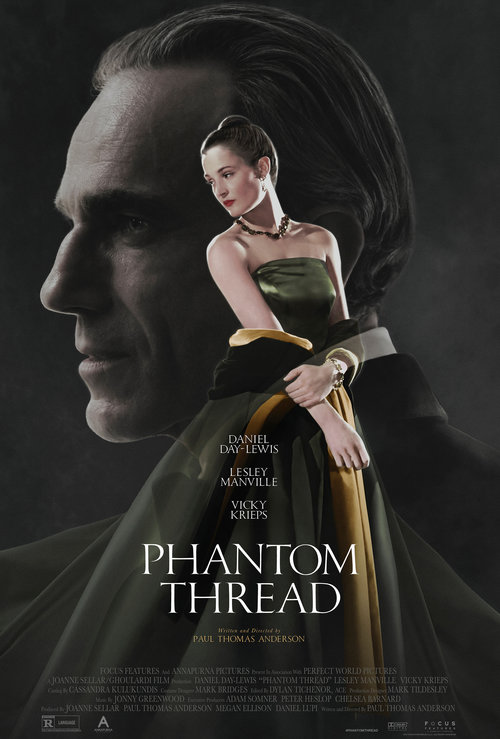I regard “There Will Be Blood” among one of the truly great modern classics and am usually intrigued when his films appear, knowing they will be of a caliber only matched by the finest directors, telling stories the likes of which are seldom told.
As such, I was looking forward to “Phantom Thread” perhaps more that any other film of the year, save “Shape of Water.” In “Phantom Thread,” all of these expectations were met in such a pleasantly satisfying way.
Of course, the most notable thing about this film at first is the acting. Day-Lewis and Krieps give portrayals of characters whose complexities are intriguing and tantalizing. This is a film which mainly consists of conversations and glances held across rooms, breakfast tables, and sewing stations, and yet, never did I feel bored. Reynolds and Alma were people I did not so much feel endeared to as fascinated by. Watching them watch each other, work together, and grasp after each other’s affections was like parsing poetry for its secret subtext.
THEME
Saying this film has a plot is like saying a marriage has a plot. There are, of course, events that transpire but the thing you are watching here is the unfolding of a relationship. What matters in the world of this film is not the events attended, the dresses made, or the kisses given, but the feelings that attend every action, glance, or tea.
The theme which emerges over the course of the film is one seldom seen in movies today. In a media culture obsessed with hormonal passion firing bursts of excitement across every screen there is little time for the slow long sacrifice of a relationship built upon love, respect, and common ground. The expression it finds is peculiar to say the least, in this film, but ultimately each (Alma and Reynolds) find that they are willing to endure tremendous hardship for the other’s sake and thus, both, unwilling to abandon the other or succumb ultimately to self absorption.







